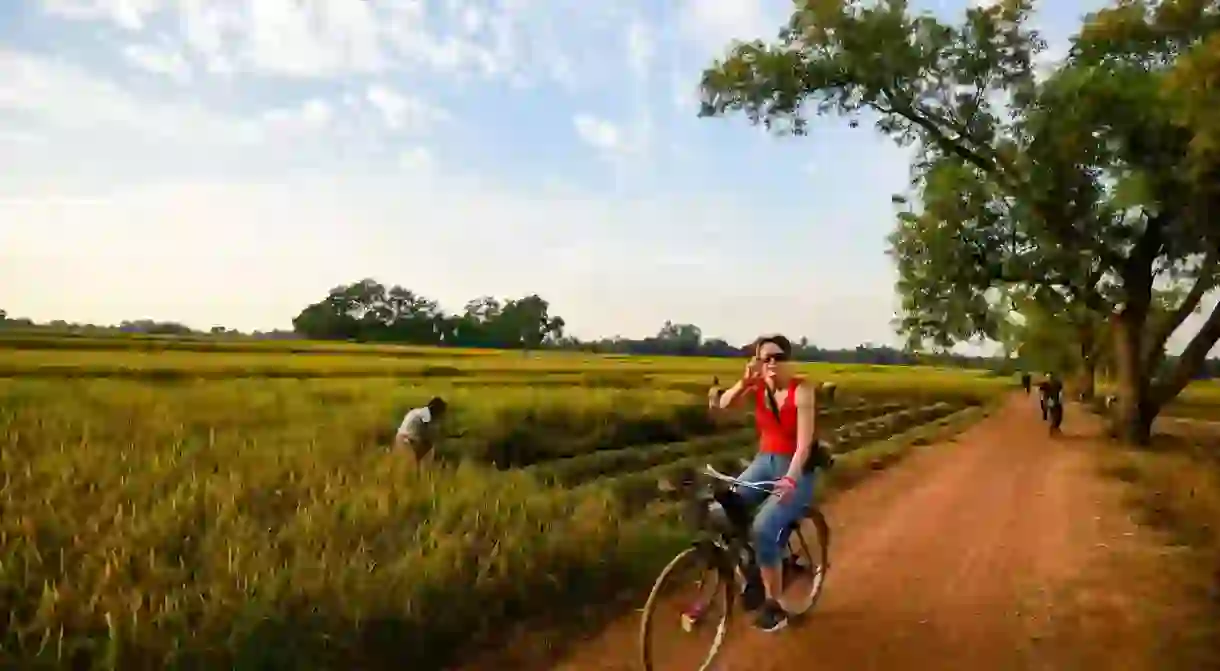Soulscape Retreats Enhance Wellbeing Through Remote Cultural Immersions

Manjul Rathee’s childhood was spent exploring some of India’s most remote locations. She grew up in a military family, and moving from pillar to post on a regular basis gave her a taste for experiences that meld community, artistry, and outdoorsiness—a combination that came to define her idea of wellness, and her retreat business.
After moving to London, Rathee continued pining for the same sense of fulfillment she enjoyed as a child, and earlier this year she launched Soulscape—a retreat company with a well-rounded itinerary designed to facilitate a deep and lasting sense of wellbeing.
Soulscape, she explains, is not your standard yoga retreat. It’s a holistic experience with the power to tap into the nuances of what makes us feel vital—the physical, emotional, spiritual and social parts of ourselves that need nurturing.
Culture Trip (CT): How did you come to set up Soulscape?
Manjul Rathee (MR): As an adult I moved to the UK and quickly became a city worker clocking in at least 14 hours of work daily. This hectic work life left me mentally and physically exhausted, so I started creating getaways for myself to help me recharge and reset. I found myself searching for experiences that took me back to my childhood, dwelling in creative activities and exploring my love for new cultures. I would jump in for firsthand experiences where possible and top this up with keeping fit. In a way, this became my recipe for a total system reboot.
I figured I was lucky to have been able to join the dots and develop this recipe to positively influence my complete wellbeing. So, I set up Soulscape earlier this year to share this with others who may be curious and want to dive several levels deeper than an average tourist.

CT: In what ways do you feel these kinds of cultural immersions impact our wellbeing in a broader sense?
MR: Cultures evolve over a period of time and reflect a community’s history, geography and the context that they are living in. Immersing oneself in a whole new culture is in itself an act of deep learning. Our wellbeing isn’t just physical—it’s mental, spiritual, and social too. Cultural experiences encourage our wellbeing in a holistic way by feeding our needs beyond just the physical.
CT: A big part of your retreat involves showing people a local’s eye view. How has your team become so integrated with these communities?
MR: Our team is made up of curious folk who spend months making friends with locals, learning about their history, their way of life, and challenges too. You may say they take on the role of anthropologists and explorers where everything we do is rooted in building and maintaining relationships around mutual respect. This goes a long way towards creating a sort of symbiosis in the localities we work in and allows us to identify local talents, craftsmen, and traditions that only an insider can connect with.
We have a fair wage policy towards all collaborators which means that artisans and locals involved benefit in a way that helps build goodwill and gratitude over time.

CT: Which destinations do you currently offer, and why did you choose them?
MR: We are currently hosting Soulscape experiences in two lesser-known parts of India: Ule, Himalayas, and Santiniketan, West Bengal.
Ule is special and lesser known. Back when Mongol raiders were looting every other monastery of its silver, Ule was too insignificant and hence was preserved. It sits nicely in between two monasteries—Likir and Alchi (3,000 years old).
I have been to Ladakh in the Himalayas a few times in the past, but this time when traveling I saw this tiny village on a cliff overlooking the Indus River and was completely smitten—first by its beauty, and after a couple of nights of discovering the local area, by how interesting this melting pot of cultures is. You see glimpses of Tibet, Mongolia, India, and even China. We found lovely eco-huts running on solar energy here and knew it was the place where we wanted to start building the next Soulscape experience.
Santiniketan is the home of the traditional arts. A UNESCO World Heritage site, the town came alive when Nobel Laureate Rabindranath Tagore started a now world-renowned Arts College here. When walking down its streets you meet poets, musicians, linguists, artists—the atmosphere pulls you in and makes you want to stay put in its rich calmness.
We partnered with a sustainable farm owner which has cottages built by a local artist using indigenous materials and very quickly were able to make friends.
CT: Why would people benefit more from Soulscape than from, say, a regular yoga retreat?
MR: Soulscape is less of a retreat and more of an incubator offering a carefully balanced recipe of activities to stimulate all aspects of your wellbeing mentally and physically. You step into it leaving the noise of modern life behind and engage in seven days of creative learning, cultural immersion and wellbeing activities that have the potential to enrich, rejuvenate, and even transform. Everything from the space you are in to the meals you eat is curated and we have an in-house yogi who is well versed in their yoga discipline.













